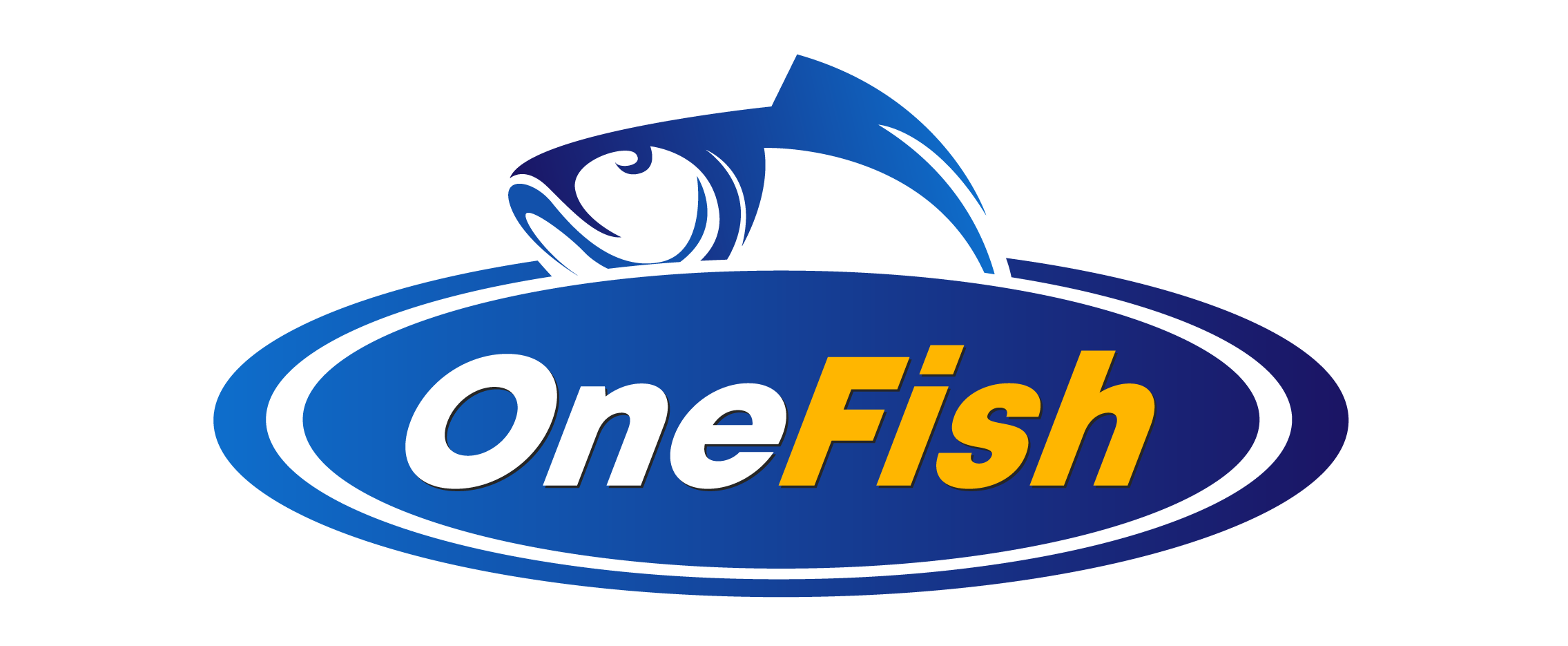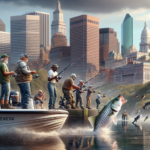Kingfish Challenge in Georgia’s Coastal Waters
Introduction
Imagine casting your line into the serene coastal waters of Georgia, only to feel the exhilarating tug of a kingfish on the other end. This is the Kingfish Challenge, a thrilling pursuit that has captivated anglers for generations. Whether you’re a seasoned fisherman or a novice looking to test your skills, understanding the nuances of kingfish fishing in Georgia’s coastal waters can make all the difference.
This article will delve into the rich history and cultural significance of kingfish fishing in Georgia, explore the best techniques and gear, and provide essential information on top fishing spots, regulations, and seasonal considerations. By the end, you’ll be well-equipped to tackle the Kingfish Challenge and make the most of your fishing adventure.
Why does this matter? For many, fishing is more than just a hobby; it’s a way to connect with nature, unwind, and even provide for their families. Mastering the art of kingfish fishing in Georgia’s coastal waters can enhance your experience, increase your catch rate, and ensure you adhere to local regulations and conservation practices.
Background/Context
Historical or Cultural Significance
Kingfish, also known as king mackerel, have long been a prized catch along the southeastern coast of the United States. In Georgia, the tradition of kingfish fishing dates back to the early settlers who relied on the abundant coastal waters for sustenance. Over the years, this practice has evolved into a popular recreational activity, drawing anglers from all over the country.
Geographical Overview
Georgia’s coastal waters are part of the Atlantic Ocean, characterized by a diverse ecosystem that includes estuaries, salt marshes, and barrier islands. The region’s climate is generally mild, with hot summers and cool winters, making it an ideal habitat for kingfish. The coastal topography, with its mix of shallow and deep waters, provides ample opportunities for both inshore and offshore fishing.
Key Points/Details
Fishing Techniques
Technique Overview
When it comes to kingfish fishing, several techniques can be employed, including trolling, live bait fishing, and jigging. Trolling involves dragging lures or bait behind a moving boat, while live bait fishing uses live fish to attract kingfish. Jigging, on the other hand, involves using a weighted lure that is jerked up and down to mimic the movement of prey.
When and Where to Use
Trolling is particularly effective in deeper waters where kingfish are known to hunt. Live bait fishing can be used both inshore and offshore, depending on where the kingfish are located. Jigging is often employed in areas with strong currents or around structures like reefs and wrecks where kingfish are likely to congregate.
Recommended Gear
- Rods: Medium to heavy-action rods are ideal for handling the strength of kingfish.
- Reels: High-capacity spinning or conventional reels with a strong drag system.
- Lines: Braided lines with a test strength of 20-30 pounds.
- Bait/Lures: Live bait such as menhaden or mullet, and lures like spoons, plugs, and jigs.
Species Information
Species Overview
Kingfish are known for their speed and agility, making them a challenging and rewarding catch. They prefer warm waters and are often found near the surface, feeding on smaller fish like sardines and anchovies. Kingfish are migratory, moving along the coast in search of food and optimal water temperatures.
Best Practices
To successfully catch kingfish, it’s essential to use the right techniques and gear. Trolling at a speed of 5-7 knots with live bait or lures can be highly effective. Pay attention to water temperature and look for signs of baitfish, as these are indicators of kingfish presence. Early morning and late afternoon are often the best times to fish for kingfish.
Location Information
Top Fishing Spots
- St. Simons Island: Known for its rich fishing grounds, offering both inshore and offshore opportunities.
- Jekyll Island: A popular spot for kingfish, with easy access to deep waters.
- Tybee Island: Offers a variety of fishing environments, from piers to offshore reefs.
Regulations and Licenses
In Georgia, anglers are required to have a valid fishing license, which can be obtained online or at local retailers. There are also specific regulations regarding the size and number of kingfish that can be caught, so it’s essential to check the latest guidelines from the Georgia Department of Natural Resources.
Seasonal Considerations
Seasonal Variations
Kingfish are most abundant in Georgia’s coastal waters from late spring to early fall. During this period, water temperatures are ideal for their feeding habits. In the winter months, kingfish tend to migrate to warmer waters, making them less accessible to local anglers.
Best Times to Fish
The optimal time to fish for kingfish is during the early morning and late afternoon when they are most active. Tides also play a crucial role, with incoming tides often bringing baitfish closer to shore, attracting kingfish.
Events and Tournaments
Event Overview
Georgia hosts several kingfish tournaments throughout the year, attracting anglers from across the country. Notable events include the Golden Isles Kingfish Classic and the Tybee Island Kingfish Tournament. These events offer cash prizes, trophies, and the opportunity to compete against some of the best anglers in the region.
Preparation Tips
To prepare for a kingfish tournament, it’s essential to practice your fishing techniques and familiarize yourself with the local waters. Ensure your gear is in top condition, and consider pre-fishing the tournament area to identify potential hotspots. Staying updated on weather conditions and tide schedules can also give you a competitive edge.
Tips and Best Practices
General Tips
- Always use fresh bait to increase your chances of attracting kingfish.
- Pay attention to water temperature and look for areas with baitfish activity.
- Use a wire leader to prevent kingfish from cutting your line with their sharp teeth.
Avoid Common Mistakes
- Overlooking Water Temperature: Kingfish prefer warmer waters, so always check the temperature before heading out.
- Using the Wrong Gear: Ensure your gear is suitable for the size and strength of kingfish.
- Ignoring Local Regulations: Always adhere to local fishing regulations to avoid fines and contribute to conservation efforts.
Advanced Techniques
- Slow Trolling: This technique involves trolling at a slower speed to mimic the natural movement of baitfish, making it more enticing to kingfish.
- Chumming: Releasing small amounts of bait into the water can attract kingfish to your fishing area.
- Using Downriggers: These devices allow you to fish at specific depths, increasing your chances of reaching kingfish that are feeding below the surface.
Gear and Equipment Recommendations
Essential Gear
- Medium to heavy-action rods
- High-capacity spinning or conventional reels
- Braided lines with a test strength of 20-30 pounds
- Live bait such as menhaden or mullet
- Lures like spoons, plugs, and jigs
Optional Gear/Upgrades
- Downriggers for precise depth control
- Chum buckets to attract kingfish
- Fish finders to locate schools of baitfish and kingfish
Where to Buy or Rent
Local bait and tackle shops in coastal Georgia towns like Brunswick, Savannah, and St. Marys offer a wide range of fishing gear. Online retailers such as Bass Pro Shops and Cabela’s also provide extensive selections and convenient delivery options.
Safety and Conservation
Safety Tips
- Always check the weather forecast before heading out to avoid rough seas and storms.
- Wear a life jacket and ensure your boat is equipped with safety gear like flares and a first aid kit.
- Be aware of local wildlife, including jellyfish and sharks, which can pose hazards.
Conservation Practices
- Practice catch and release to help maintain healthy fish populations.
- Respect local wildlife and avoid disturbing their natural habitats.
- Follow all fishing regulations, including size and bag limits, to support sustainable fishing practices.
Planning Your Trip
Accommodations
Georgia’s coastal towns offer a variety of accommodations, from budget-friendly motels to luxury resorts. Popular options include the King and Prince Beach & Golf Resort on St. Simons Island and the Jekyll Island Club Resort.
Travel Tips
Most coastal fishing spots in Georgia are easily accessible by car. Major highways like I-95 run along the coast, providing convenient access to fishing destinations. If you’re flying in, the Savannah/Hilton Head International Airport is a central hub with car rental services available.
Additional Activities
When you’re not fishing, explore the rich history and natural beauty of Georgia’s coast. Visit historic sites like Fort Pulaski National Monument, take a guided kayak tour through the salt marshes, or relax on the pristine beaches of Tybee Island.
Frequently Asked Questions (FAQs)
What is the best time of year to fish for kingfish in Georgia?
The best time to fish for kingfish in Georgia is from late spring to early fall when water temperatures are ideal for their feeding habits.
Do I need a fishing license to fish for kingfish in Georgia?
Yes, a valid fishing license is required to fish for kingfish in Georgia. Licenses can be obtained online or at local retailers.
What type of bait is best for catching kingfish?
Live bait such as menhaden or mullet is highly effective for catching kingfish. Lures like spoons, plugs, and jigs can also be used.
Are there any local fishing tournaments for kingfish in Georgia?
Yes, Georgia hosts several kingfish tournaments throughout the year, including the Golden Isles Kingfish Classic and the Tybee Island Kingfish Tournament.
Conclusion
Kingfish fishing in Georgia’s coastal waters offers an exciting and rewarding experience for anglers of all skill levels. By understanding the best techniques, gear, and locations, you can enhance your chances of success and make the most of your fishing adventure. Remember to follow local regulations and practice conservation to ensure these waters remain bountiful for future generations. So grab your gear, head to the coast, and take on the Kingfish Challenge!


